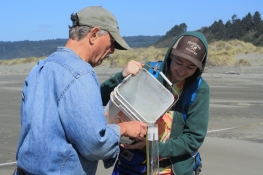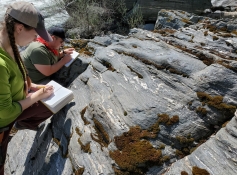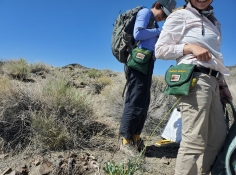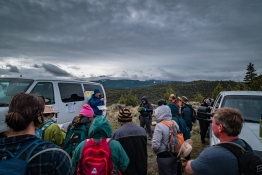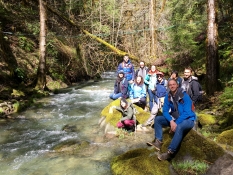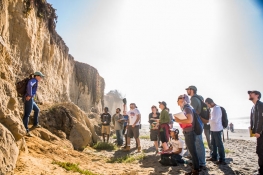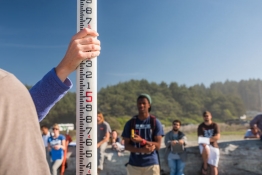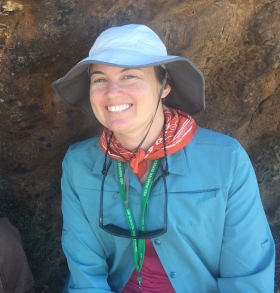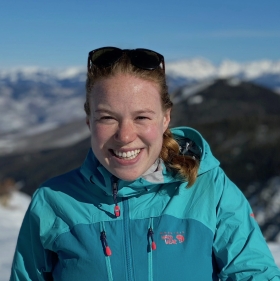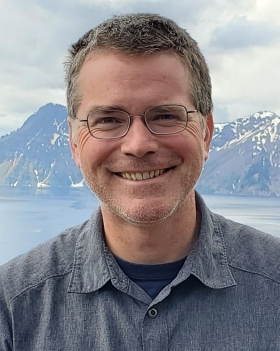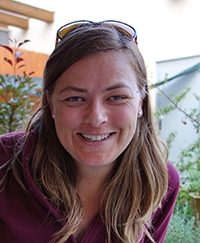Graduate Program (M.S.)
Advance your career and conduct original geoscience research by pursuing a Master of Science degree in Environmental Systems—Geology.
The Geology M.S. program includes graduate level coursework and an original M.S. thesis. M.S. students complete 30 units of coursework and thesis work units, and are expected to take a broad range of geoscience courses within our department. You will also work closely with a thesis faculty adviser in our program, along with 2-3 additional committee members. Once you complete your coursework (approx 3 semesters) and write your M.S. thesis proposal, you will advance to candidacy and focus on collectiong and analyzing data, writing and presenting your original research under the supervision of your committee.
Our field and laboratory-based M.S. program matriculates a small cohort of graduate students each year. Your graduate experience will include coursework and completion of an original thesis.
Coursework: you will take a broad set of courses that will give you a solid foundation in advanced geology, taking advantage of specialization courses offered by our department, and giving you the skills you need to pursue professional licensure in geology and/or a Ph.D. You will work one-on-one with your adviser to develop a coursework plan tailored to your specific research and career goals.
M.S. thesis: The thesis is an original, inquiry-based research contribution completed under mentorship of a primary adviser within the Geology Department and two to three additional committee members with related expertise. Theses topics are aligned with your faculty adviser. Over the past decade, most Masters theses have been completed in the general areas of neotectonics, tectonic geomorphology, fluvial geomorphology, glacial geology, volcanology, tectonics, and geochronology.
How long to complete your M.S. degree? Residence time for course and thesis completion takes two to three years. Most graduate student residencies are closer to three years.
Before you apply: we suggest you look through our Faculty and Research Associates on the geology home page and contact those faculty with whom you may want to work, and ask them if they are accepting students.
When to apply? We accept applications for matriculation in both Fall and Spring semesters. Please visit the Graduate Studies office for deadlines.
Required Courses
Graduate Orientation in Environmental Systems (one-time, one day)
Topics in Environmental Systems (one course, many options can fulfill this requirement)
Graduate Colloquium in Environmental Systems (one course taken by all Environmental Systems graduate students)
Data Collection & Analysis (a required statistics course specially designed for, and required of, all Environmental Systems graduate students).
Theses units (GEOL 690 & GEOL 699; 9 units) to be taken under direct supervision of your MS thesis adviser
Additional Required Courses; students will take a selection of 14 units of the following courses offered within the Geology Department, depending on faculty availability:
Neotectonics, GEOL 555 (3 units)
Quaternary Stratigraphy, GEOL 553/553L (4 units)
Advanced Geology Field Methods, GEOL 554 (2 units)
Geochronology, GEOL 524 (3 units)
Volcanology, GEOL 474 (3 units)
Engineering Geology, GEOL 457 (4 units)
Glacial Geology, GEOL 552, (3 units)
Hydrogeology, GEOL 556 (4 units)
And other relevant courses to reach a required 30-credit minimum. Courses (from other programs) that we encourage to fulfill the additional credits include GIS-skills courses, mathematical modeling (especially Matlab-related) and a soils classification course.
Graduate Faculty
Melanie Michalak
Associate Professor & Department Chair
- mjm367@humboldt.edu
- (707) 826-4978
- Founders Hall, Rm. 162
Tectonics, Geomorphology, Geochronology
Jaclyn Baughman
Assistant Professor
WebsiteThermochronology and Geochronology, Deep-time, Tectonics, Geochemistry, Geoscience Education
Brandon Browne
Professor and co-Department Chair
- brandon.browne@humboldt.edu
- (707) 826-3950
- Founders Hall (FH), Rm. 21
Igneous petrology, volcanology, field geology
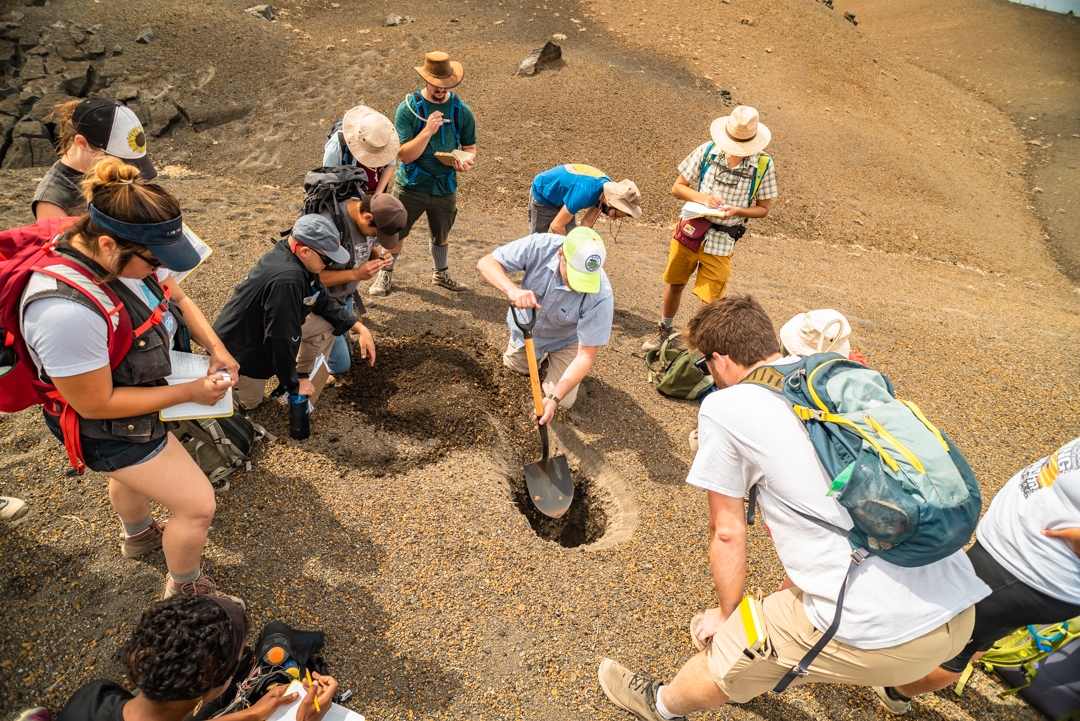
Laura Levy
Associate Professor
- laura.levy@humboldt.edu
- (707) 826-3165
- Founders Hall, Rm. 12
Glacial geology, Sedimentology, Quaternary climate change

